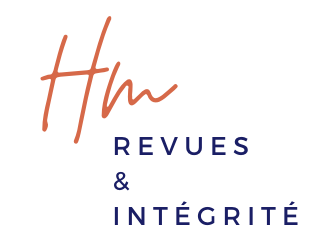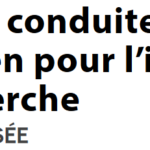C'est un communiqué de presse du 13 août 2015 sur le site de STM publishing news qui commente une enquête auprès de 22 000 chercheurs ayant répondu, et faite par le groupe Nature. Voici le résumé comparant les données 2015 et 2014 montrant une évaluation rapide des comportements : "In 2014, 40% of scientists who had not published open access in the last three years said “I am concerned about perceptions of the quality of OA publications.” But this year, only 27% said they were concerned. In the humanities, business and social sciences (HSS), the drop was more marked; from 54% in 2014 to 41% in 2015. Nonetheless, a concern about perceptions of the quality of OA publications is still the leading factor in authors choosing not to publish OA."
Les chercheurs se méfient moins de l'Open Access (OA) et ils ont raison, bien que les revues prédatrices les trompent trop souvent. Toutes les données sources de cette enquête d'avril 2015 sont accessibles sur figshare. Il y a le questionnaire, toutes les données et une synthèse.
Il existe d'excellentes revues en OA qui sont des compétiteurs des revues prestigieuses que nous connaissons.. Je ne peux pas citer les meilleures sans faire d'erreurs, et d'oublis. Il faut avoir une très grande confiance en PLOS Medicine (et autres PLOS de spécialité, excepté PLOS ONE), eLife, PeerJ, F1000Research, et la plupart des revues du groupe BMC (BioMedCentral)… sans oublier que BMJ, Lancet et autres 'anciennes' revues se rapprochent beaucoup du modèle Gold OA (les auteurs payent un APC, Article Processing Charge). Il vaut mieux des chercheurs avertis que des chercheurs ignorants évitant l'OA.
D'autres informations de ce communiqué sont très intéressantes :
Key findings from the survey include:
- The four most important factors for author when choosing where to publish were:
- Reputation of the journal
- Relevance of journal content
- Quality of peer review
- The journal’s Impact Factor (although authors in the HSS disciplines placed more importance on journal readership than Impact Factor.)
- Factors that contributed most to a journal’s reputation were:
- The journal’s Impact Factor
- Seen as the place to publish the best research
- The consistency of quality
- Quality of peer review
- When asked about their understanding of their main funders’ open access policy, 30.7% of authors accurately matched the policy.
- Another 30% partially matched their funders’ policy, and 40% did not match their funders’ policy.
- Of those who did not match their funders’ policy, 41% thought their funder had no open access requirement when it did, while another 41% thought their funder had an open access requirement but it did not.
- Chinese authors are much more likely to receive support to publish their research via open access (OA) than their global colleagues and an increasing proportion are choosing to do so exclusively.
- 92% of Chinese researchers who took part had sufficient funds to publish their research in OA journals, substantially higher than the global average 68% of researchers from the rest of the world.
- 20% of Chinese authors report having published exclusively in OA journals in the last 3 years.




